Sustainability
Third Party Product Certifications
To reduce the quantity and toxicity of waste in California, State law requires State agencies and other public entities to purchase environmentally preferable products that cover a range of attributes, including whether the product is repairable, durable, made with recycled content, and can be recycled again.
Purchases that meet the following product certifications are recognized by the CSU as environmentally preferable products. Note: This list of approved third party certifications does not replace the need to meet contract specifications. E.g. If the contract specifications require 70% post-consumer recycled content, merely holding a Forest Stewardship Council (FSC) Certification is not sufficient to be considered compliant; the product must still satisfy the 70% post-consumer content specification as well.
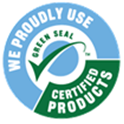 |
Green Seal is a non-profit organization that identifies and promotes products and services that cause less toxic pollution and waste, conserve resources and habitats, and minimize ozone depletion. All preferred janitorial suppliers have preference to supply Green Seal™ and EcoLogo® products in our operations. |
 |
UL Ecologo Certified products, services and packaging are certified for reduced environmental impact. ECOLOGO Certifications are voluntary, multi-attribute, lifecycle based environmental certifications that indicate a product has undergone rigorous scientific testing, exhaustive auditing, or both, to prove its compliance with stringent, third-party, environmental performance standards. |
 |
EPA Safer Choice is a voluntary program that works to advance the mission of EPA to protect human health and the environment by helping product manufacturers choose the safest chemical ingredients possible. |
 |
Forest Stewardship Council (FSC) is an international organization that bring people together to find solutions that promote responsible stewardship of the world’s forests. |
 |
Other multi-criteria sustainability standards and ISO Type 1 ecolabelling Network and/or ISEAL Alliance member organizations. |
 |
The Cradle to Cradle Certified™ Product Standard guides designers and manufacturers through a continual improvement process that looks at a product through five quality categories: material health, material reutilization, renewable energy and carbon management, water stewardship, and social fairness. |
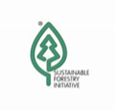 |
Sustainable Forestry Initiative (SFI) is a North American 'forest certification standard' and program of SFI Inc., a non-profit organization. The Sustainable Forestry Initiative is the world’s largest single forest certification standard by area. |
 |
Green Seal is an independent non-profit organization dedicated to safeguarding the environment and transforming the marketplace by promoting the manufacture, purchase, and use of environmentally responsible products and services. |
 |
Cedar Grove Certified Cedar Grove Products are tested on site to the ASTM standards and must work in Cedar Grove's composting process. Most certified compostable items meet Cedar Grove's composting guidelines, which help ensure the products will compost in a commercial compost facility. |
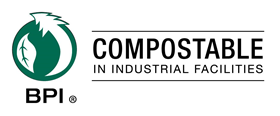 |
The Biodegradable Products Institute is the current standard in U.S. for composting. BPI and the US Composting Council use the American Society for Testing and Materials (ASTM) specifications to certify products as compostable. It was the Biodegradable Products Institute that created the compostable logo as seen on products. This logo is designed to reduce the confusion that surrounds plastic composting. The compostable logo can only be used on certified products. Because of that, it helps you know which products legitimately meet the ASTM D6400 and/or D6868 standards. It also helps the composter rest easy that the products you send them will biodegrade as expected. |
 |
EPEAT is the leading global ecolabel for the IT sector. The EPEAT program provides independent verification of manufacturers’ claims and the EPEAT online Registry lists sustainable products from a broader range of manufacturers than any comparable ecolabel. National governments, including the United States, and thousands of private and public institutional purchasers around the world use EPEAT as part of their sustainable procurement decisions. The Green Electronics Council (GEC) manages this flagship program, including ensuring the integrity of the EPEAT system. EPEAT is one example of how GEC supports institutional purchasers around the world, fostering a market for sustainable IT products to achieve our mission of a world of only sustainable IT. |
 |
ENERGY STAR® is the government-backed symbol for energy efficiency, providing simple, credible, and unbiased information that consumers and businesses rely on to make well-informed decisions. Thousands of industrial, commercial, utility, state, and local organizations—including about 40% of the Fortune 500®—partner with the U.S. Environmental Protection Agency (EPA) to deliver cost-saving energy efficiency solutions that improve air quality and protect the climate. Since 1992, ENERGY STAR and its partners helped American families and businesses save more than 4 trillion kilowatt-hours of electricity and achieve over 3.5 billion metric tons of greenhouse gas reductions, equivalent to the annual emissions of more than 750 million cars. In 2018 alone, ENERGY STAR and its partners helped Americans avoid $35 billion in energy costs. |
 |
BIFMA is the not‐for-profit trade association for business and institutional furniture manufacturers. Since 1973, BIFMA has been the voice of the commercial furniture industry. BIFMA sponsors the development and refinement of standards, educates on the importance and application, translates their necessary complexity into more easily understood and implemented formats, and promotes sustainability throughout the life cycle of commercial furniture. |
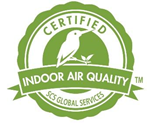 |
SCS Indoor Advantage Gold provides 3rd party product evaluation and standards for: Promoting management system certification, product certification, inspection, validation and verification in accordance with the applicable certification standards; Assisting companies and industries implement systems and practices that minimize impacts on human health and the environment; Delivering world-class assessment and certification services; Continually monitoring scientific developments, market dynamics and regulatory requirements. |
 |
UL Environment's GREENGUARD Certification program helps manufacturers create--and helps buyers identify and trust--interior products and materials that have low chemical emissions, improving the quality of the air in which the products are used. All certified products must meet stringent emissions standards based on established chemical exposure criteria. UL Environment, a business unit of UL (Underwriters Laboratories), acquired GREENGUARD in 2011, further advancing its mission of promoting global sustainability, environmental health, and safety. GREENGUARD Certification is broadly recognized and accepted by sustainable building programs and building codes around the world. Additionally, the UL SPOT Database serves as a free online tool for finding certified low-emitting products for offices, hospitals, schools, homes, and more. |
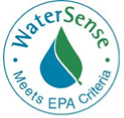 |
WaterSense, a voluntary partnership program sponsored by the U.S. Environmental Protection Agency (EPA), is both a label for water-efficient products and a resource for helping you save water. The WaterSense label makes it simple to find water-efficient products, new homes, and programs that meet EPA’s criteria for efficiency and performance. WaterSense-labeled products and services are certified to use at least 20 percent less water, save energy, and perform as well as or better than regular models. WaterSense partners with manufacturers, retailers and distributors, homebuilders, irrigation professionals, and utilities to bring WaterSense to your community. Our partnerships encourage innovation in manufacturing and support sustainable jobs for American workers. |
 |
Protected Harvest verified certification standards are focused on reducing the impact of toxic pesticides on the environment. To qualify for certification, growers must stay below an established total number of Pesticide Risk Units per acre as established by the Pesticide Environmental Assessment System (PEAS). The most highly toxic pesticides are prohibited due to the high number of risk units for even a single application. Other moderate risk pesticides may be used with restriction. The overall number of toxicity units permitted is low, and growers must make their chemical choices wisely to obtain certification. |
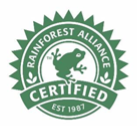 |
The Rainforest Alliance is an international non-profit organization working at the intersection of business, agriculture, and forests to make responsible business the new normal. We are building an alliance to protect forests, improve the livelihoods of farmers and forest communities, promote their human rights, and help them mitigate and adapt to the climate crisis. |
 |
Fair Trade USA certified is the innovative model of responsible business, conscious consumerism, and shared value to eliminate poverty and enable sustainable development for farmers, workers, their families, and their communities around the world. |
 |
The e-Stewards initiative defines and promotes responsible electronics reuse and recycling best practices worldwide. The e-Stewards Program is making a difference in how electronic assets, or e-waste, are disposed. We offer news, advice, and solutions on the changing, and often frustrating, landscape of e-waste recycling and reuse. Discover how you can recycle computers, printers, and other electronic devices responsibly. |
 |
BAN’s mission is to champion global environmental health and justice by ending toxic trade, catalyzing a toxics-free future, and campaigning for everyone’s right to a clean environment.BAN’s namesake is the 1989 United Nations Basel Convention, which restricts the trade of hazardous waste between more developed countries and less developed countries. BAN currently tackles three toxic waste streams covered by the Basel Convention: electronic waste (e-waste), the fastest growing waste stream globally, end-of-life ships, like the cargo ships that carry our goods, plastic pollution. We prevent pollution dumping on the world’s poorest residents. |
